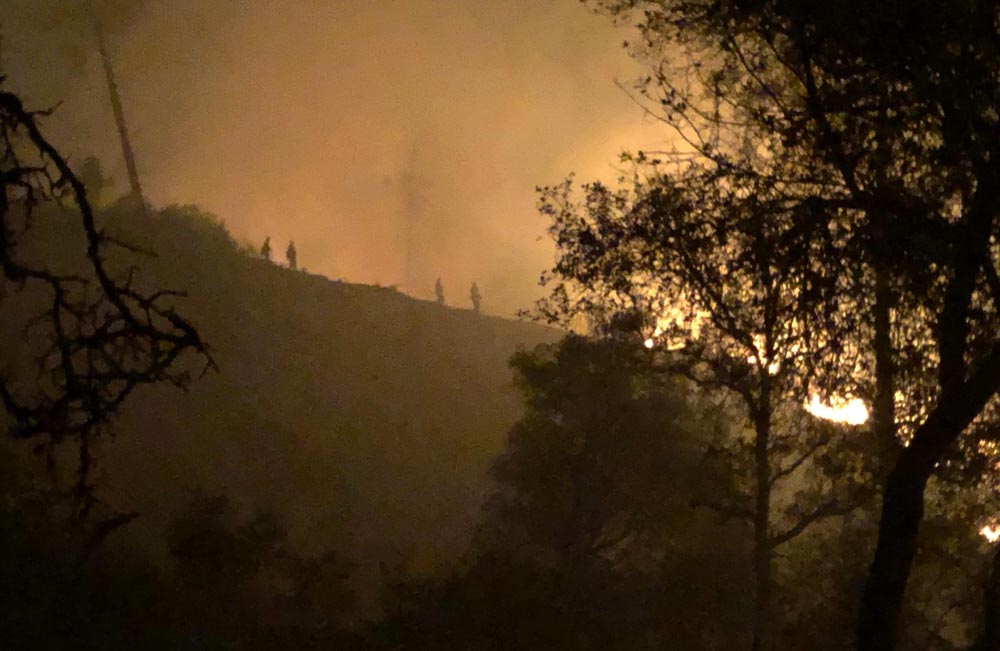
A Mississippi State University civil engineering faculty member who researches resilience against extreme events and natural hazards is responding to lessons learned from California’s deadly Camp Fire by outlining how to utilize the power of data to improve disaster response and minimize economic loss and human harm in similar events.
In a letter published January 10, 2019 in Science Magazine, Farshid Vahedifard writes that in the aftermath of the Camp Fire in Northern California, it is critical to examine how decision makers and first-responders can “prevent an extreme hazard like the Camp Fire from turning into a massive human disaster.”
Vahedifard is an MSU Bagley College of Engineering associate professor who also holds the Civil and Environmental Advisory Board Endowed Professorship. He penned the Science letter with MSU colleague Alireza Ermagun, assistant professor of civil and environmental engineering; Kimia Mortezaei, an MSU engineering postdoctoral associate with the university’s Center for Advanced Vehicular Systems; and Amir AghaKouchak, a University of California-Irvine associate professor of civil and environmental engineering.
With reports pointing to shortcomings in disseminating critical information to warn residents before and during the November fire that killed 85 people, scorched more than 153,336 acres and destroyed more than 18,800 structures, the authors point out that a “lack of an integrated framework for circulating information among decision-makers and passing it to residents exacerbated the devastating impact of the wildfire.”
They assert that investment in an integrated system for identifying, harnessing, synthesizing, and communicating pertinent data would “enable decision-makers and communities to better anticipate, prepare for, respond to and recover from extreme events such as the Camp Fire.”
They continue, “We must identify relevant stakeholders, examine the required data, collect public and relevant private data efficiently, and develop platforms for processing datasets such as weather data, cell phone GPS data as proxy for people, social media feeds, and traffic cameras and sensors. We then need strategies to convert data sets into usable information by using artificial intelligence technologies for decision-support systems. To communicate the resulting information effectively, we need a reliable data infrastructure for real-time analysis that could alert residents by email, phone messages, text warning, television, radio, and ‘reverse 911.’”
Vahedifard and colleagues previously have published research and commentary highlighting how a chain of events, such as wildfires, landslides and mudslides, cascades like a series of toppling dominoes and leads to catastrophic disasters.

I’m struck by the appraoch presented, in that it seems to be post-ignition/event driven: only after it begins, and then it’s up to “decision makers and first-responders” to prevent an extreme hazard like the Camp Fire from turning into a massive human disaster. While I agree that decisions made and actions taken, particularly in the first-phases of a developing disaster are critical, the focus can’t be in that direction alone. The far greater impact is before the disaster occurs – actions taken by planners, insurance companies, homeowners, elected officials, and others implementing sound land-use decisions, firewise construction techniques, and hazard mitigation activities, all prepared to Ready-Set-Go, coupled with adequate training, staffing, and equipping of first responders, that makes the ultimate difference. All too often we look at the response as the solution when it fact its a symptom of failure elsewhere.
I agree with you Paul. The articule seems a little pointed. Very scientific from such a learned mind. Too often do those people try and apply the scientific method to real life I feel. I do see what he is trying to write, and I agree, we can always do better. As long as money is more important than the well being and survival of our species, catastrophes like this will continue to be the norm. As a first responder I’d give everything including my life to help my fellow people. Hurts me when people point the blame to the human factor of the first responder.